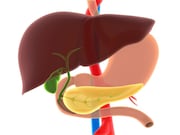Majority of U.S. Doctors Believe ACA Has Improved Access to Care
In 2017 versus 2012, more doctors agreed the ACA would turn U.S. health care in the right direction
Metabolic Surgery May Reduce CV Risk in T2DM With Obesity
Reduction seen in primary end point and seven prespecified secondary outcomes, including mortality
Drinking Soft Drinks Tied to Higher Risk for Early Death
Higher risk for death seen for drinking two or more sugar- or artificially sweetened soft drinks per day
Low-Fat Dietary Pattern Offers Long-Term Health Benefits
Significant benefits seen in relation to breast cancer, CHD, diabetes, without adverse effects
Benefit, Harm Seen for Ticagrelor Plus Aspirin in Stable CAD With T2DM
Incidence of ischemic cardiovascular events lower but major bleeding increased versus placebo plus aspirin
August 2019 Briefing – Diabetes & Endocrinology
Here are what the editors at HealthDay consider to be the most important developments in Diabetes & Endocrinology for August 2019. This roundup includes...
Cerebrovascular Risk Factors May Up Risk for Parkinson Disease
Most cerebrovascular risk factors linked to higher risk for subsequent diagnosis of Parkinson disease
Dipeptidyl Peptidase-4 Inhibitors May Up Pancreatic Disease Risk
Risks for pancreatitis, pancreatic cancer higher in Korean patients with newly diagnosed T2DM
Psoriasis Independently Linked to Increased Mortality Risk
Comorbidities such as CVD, diabetes, COPD, cancer, CKD, and stroke mediate part of the association
Decline in Mortality Rates for Cardiometabolic Disease Slowing
From 2010 to 2017, no significant change seen in age-adjusted mortality rates for stroke, diabetes



















